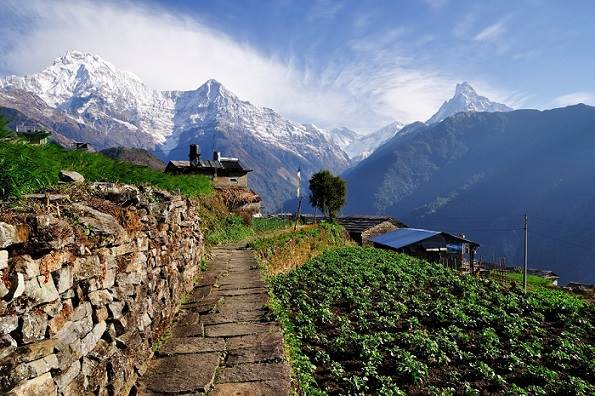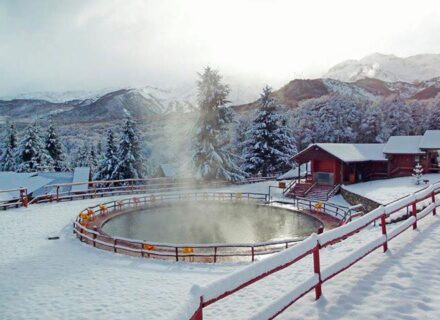Nepal is a hikers paradise. Combining stunning peaks, tranquil lakes and charming villages, it remains a popular destination for adventure travellers. Nepal is home to 8 out of 10 of the world’s highest peaks, including the monstrous Mount Everest! Trekking in the Annapurna Foothills is a popular activity amongst the adventurous out there who don’t wish to take on the highest mountain in the world, but still want to experience the beauty of the Nepal Himalaya. While it requires a decent level of fitness, the treks are gentle and you will stay in comfortable mountain lodges in the heart of nature, and pass incredible mountain vistas, snow capped peaks and deep valleys. The terrain here can vary drastically, from subtropical jungle to dry landscape.
Thinking about booking a Tucan Travel tour that includes trekking in the Annapurna Foothills? Here are some fast facts you might like to know!
- Our base will be the town of Pokhara, located in central Nepal and known as the gateway to the Annapurna Circuit.
- Our tours include 2 days of trekking in the foothills and 2 nights spent in mountain lodges.
- The first day of trekking covers roughly 11 km with mostly uphill terrain and the second day covers around 20 km but with flat or downhill terrain.
- A local guide will accompany the group to explain the flora and fauna you pass and porters will assist carrying your overnight bags.
- Your main luggage will remain at the hotel in Pokhara.
- Your overnight items will be placed in a duffel bag and carried by porters. You will only require a small day pack with your essentials (sun block, camera, phone, snacks etc)
What should I pack for trekking in the Annapurna Foothills?
You should only pack what you need for 2 days/2 nights and always ensure you double check the weather depending on what month you are trekking in. Below is a list of recommended items to bring in your overnight bag. Please Note that all of the below items can be bought from Pokhara if necessary, however it is cheaper and safer to try and be as prepared as possible in advance.
- 1 pair of comfortable, worn in hiking shoes
- 3 pairs of trekking, cotton or woollen, socks
- 1 fleece jacket or pullover
- 1 pair of hiking trousers
- 2 pieces of long sleeve t-shirts
- 1 rain and wind protection jacket and trousers (for June/July and December/January)
- Thermal underwear (for October – January)
- 1 woollen hat (for October – January)
- 1 gloves (for October – January)
- Hat /cap (for all seasons, cap for sun protection or hat for winter)
- Sun block (especially April – July when temperatures can reach 34DC)
- Toiletries and any personal medicine
- Sun glasses
- 1 mini torch


